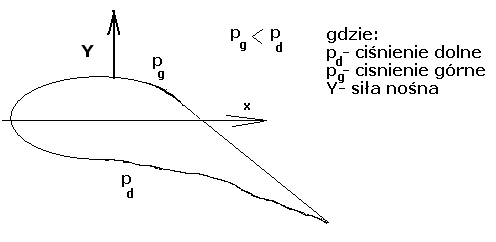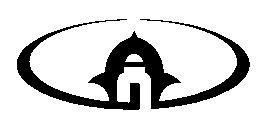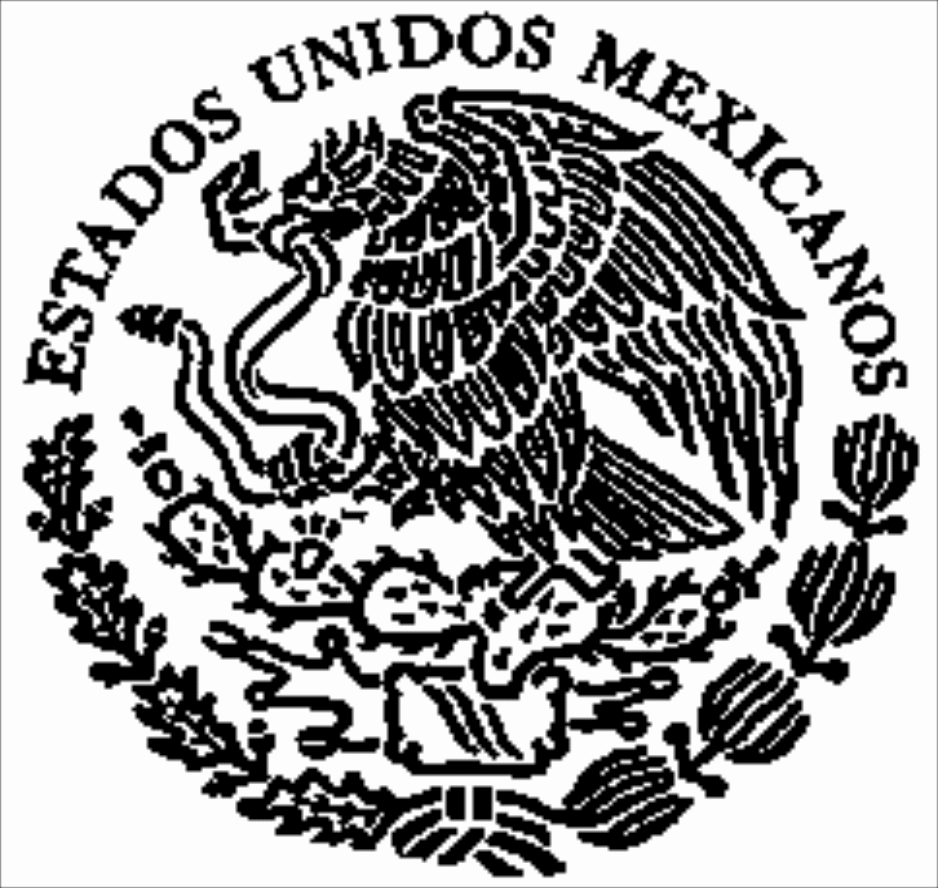TEACHERS LEARNING OF AND FROM PRACTICE IN A STANDARDSBASED
(TEACHERS’ SHARING) DRESS SENSE AND APPRECIATION OF FASHION AIMS107 TEACHERS HERE IS A REVIEW ACTIVITY THAT SERVES
12 ÖĞRETİMDE BİLGİSAYAR KULLANIMINA İLİŞKİN ÖĞRETMEN GÖRÜŞLERİ TEACHERS’ PERSPECTIVES
13 EMOTIVE LANGUAGE POWERPOINT SLIDE NOTES FOR TEACHERS
16 NCAC 06C 0504 RUBRIC FOR EVALUATING TEACHERS (A)
2016 ONTARIO COLLEGE OF TEACHERS CONFERENCE INSPIRING PUBLIC CONFIDENCE
The professional education and development of
TEACHERS LEARNING OF AND FROM PRACTICE
IN A STANDARDS-BASED REFORM:
THE CASE OF QATAR
Hanna Nadim Haydar
RAND Education
ABSTRACT
The purpose of this study is to describe and analyze a continuing professional development system in the context of a standards-based reform in the State of Qatar. It aims to examine the learning opportunities for teachers of mathematics in the 12 new independent schools in Qatar and how their learning of and from practice is facilitated.
The continuing professional development system in Qatar comprises a set of three 5-days workshops, follow-on activities, on-site mentoring and facilitation, and school-based professional development plans.
Guskey’s model of professional development evaluation (Guskey, 2000) is being used as a framework for data collection and analysis. Based on the levels of the model, a marriage of experimental and ethnographic tools will be used to measure the teachers’ reactions, their learning, organizational support, and teachers’ use of new knowledge and skills.
The findings of this study will be used by educational policy makers in Qatar to improve or change the continuing professional development system in order to maximize the learning of teachers from and of practice in the context of standards-based reform.
INTRODUCTION
The state of Qatar is undergoing a systemic education reform - Education for A New Era -- that is based on the four principles of 1) autonomy for schools, 2) accountability through a comprehensive assessment system, 3) variety in schooling alternatives, and 4) choice for parents, teachers, and school operators. It follows the Charter School Model that exists in a number of countries such as the U.S. and New Zealand. Qatar is implementing a partially decentralized system by opening 12 new independent schools in the fall of 2004 that are funded by the government but operated by nongovernmental parties. Standardized national tests aligned to internationally-benchmarked curriculum standards are used as a part of the school evaluation system.
The new internationally-benchmarked curriculum standards are based on the premise that all Qatari students are capable of learning in new innovative ways and of achieving high levels of performance in four subjects: mathematics, science, Arabic and English. The standards are aligned to expectations in those countries that demand the most of their students, including those that achieve excellent results in international tests.
The mathematics standards are organised in four strands as follows:
• Reasoning and problem solving;
• Number and algebra, plus calculus from Grade 10;
• Geometry and measures, which includes trigonometry from Grade 9;
• Data handling, which is separated into statistics and probability from Grade 10 onwards.
The
reasoning and problem solving strands are meant to be integrated with
the other three strands in teaching and assessment.
Students learn from an early age to apply
their mathematical skills to solve a wide range
of familiar and
unfamiliar problems and to explain and justify their reasoning.
CONTINUING PROFESSIONAL DEVELOPMENT SYSTEM:
To help mathematics teachers in the independent schools learn of and from practice in the transition period, a complex system of continuing professional development has been put in place.
This system is in line with current international trends of teachers’ professional development (NSDC, 2001):
Professional development that improves the learning of all students organizes adults into learning communities whose goals are aligned with those of the reform.
Professional development that improves the learning of all students provides educators with the knowledge and skills to collaborate.
Professional development that improves the learning of all students requires resources to support adult learning and collaboration.
The main components of this system can be described as follows:
Standards Implementation Support workshops: three five-day workshops were developed in order to introduce the curriculum standards for mathematics and to discuss with teachers in the 12 independent schools the implications for planning the curriculum, teaching, learning, and assessment.
Follow-on activities: focus groups, schools visits and classroom observations that take place regularly between and around the workshops mentioned in (a).
School Support Organization contributions: each school is assigned an internationally-recruited school support organization that helps facilitate and/or mentor teachers in their daily classroom practice.
School-Based professional development: each school is expected to craft its own professional development plan that might vary in shape and style according to the school vision and resources.
PURPOSE OF THE STUDY
This study seeks to 1) describe and analyze this continuing professional development system, and 2) explore the availability of opportunities for mathematics teachers in Qatar’s new independent schools to learn and reflect on one’s own teaching practice.
The results of the study will be presented to policy makers to inform their decision-making on improving the professional development system for mathematics teachers who will teach in Qatar’s new independent schools.
In particular, this study seeks to answer the following research questions:
What are the opportunities offered by the continuing professional development system in Qatar for teachers to examine practices of teaching and learning mathematics?
What kinds of collaboration are practiced and encouraged in the independent schools in Qatar?
What do teachers learn from these different opportunities? In what ways are these teachers learning more about mathematics, about students’ learning of mathematics, and about the teaching of mathematics?
How do teachers use their learning of and from practice in their classroom? How effcicent do they implement new learning in their practice?
PROCEDURES
To evaluate the continuing professional development system and answer the research questions this study will use a marriage of both experimental and ethnographic methodologies. Guskey’s model of professional development evaluation (Guskey,2000) will be used as a framework for data collection and analysis. The first four of his five critical levels of professional development evaluation will determine the scope of this study as such:
Level 1: Participants’ reactions: questionnaires are being administered and will be used to assess the teachers’ initial satisfaction with their experience with the different components of the system.
Level 2: Participants’ learning: paper-and-pencil instruments ( structured response sheets, and workshop activities reports), demonstrations (model teaching, simulations around the new skills), and participant reflections will be analyzed to assess the new knowledge and skills of participants. The workshops’ objectives outline the indicators of successful learning upon which each of the above research tools were based and developed.
Level 3: Organization’s support and change: observation reports, minutes from follow on meetings, and structured interviews with participants and administrators will be used to determine the effectiveness of organization support and opportunities for teacher collaboration and learning from practice.
Level 4:Participants’ use of new knowledge and skills: classroom observations, interviews, and participant reflections will be used to analyze the participants’ use of new knowledge and skills. Indicators of both the degree and quality of the implementation of new learning were specified based on the workshops objectives to guide the data collection and analysis at this level.
STUDY TIMELINE
This study was launched with the beginning of the current school year in August 2004 and is following the timeline below:
First 5 days workshop: End of September 2004
Second 5-days workshop: Beginning December 2004
Third 5-days workshop: Beginning Mid-February 2005
Follow- on activities: October 2004 through End of February 2005
Schools visits and classroom observations: November 2004 through Mid-March 2005
Data Analysis: October 2004 through Mid-March 2005
Report writing: second half of March 2005
REFRENCES
Guskey, T.R. (2000) . Evaluating professional development. Thousand
Oaks, CA: Corwin.
Guskey, T.R. (2002) . Does it make a difference? Evaluating professional
Development. Educational Leadership. 59 (3) ,45-51
National Staff Development Council (2001) . NSDC Standards for Staff
Development (revised, 2001). www.nsdc.org/standards/index.cfm
2020 APPLICATION GUIDE FOR INTERNATIONAL CHINESE LANGUAGE TEACHERS (CONFUCIUS
5 DEPT OF EDUCATION & SCIENCE POST PRIMARY TEACHERS
A GUIDE FOR TEACHERS DEVELOPED BY DRTHOMAS E JACKSON
Tags: learning of, new learning, practice, teachers, standardsbased, learning
- OFICINA ECONÓMICA Y COMERCIAL DE ESPAÑA BUCAREST MISION ESTUDIO
- PRILOG 1 TEHNIČKI ZAHTJEVI EKO DIZAJNA ZA UREĐAJE
- 581 FARMACIA 2008 VOLLVI 5 COMPONENT ANALYSIS OF ILLICIT
- NA OSNOVU ČLANA 8 ZAKONA O JAVNIM NABAVKAMA („SLUŽBENI
- SAMPLE SEATBELT POLICY (1) 1 THE [AUTHORITYCITYCOUNTY] HAS DECLARED
- 12 ÍNDEXS DE PREUS I TAXA D’INFLACIÓ EL
- MUSEO GEOMINERO CARTA DE SERVICIOS FEBRERO
- THE CE MARK IS COVERED BY COUNCIL DECISION 93465EC
- U SKLADU SA ODREDBAMA ZAKONA O HIPOTECI („SLUŽBENI GLASNIK
- ROYAL NATIONAL INSTITUTE OF THE BLIND EYE SURGERY SUPPORT
- ĮSTATYMAS PASKELBTAS ŽIN 1994 NR 891706 NEOFICIALUS ĮSTATYMO TEKSTAS
- SKIP TO CONTENT THIS SITE WILL REDIRECT TO THERMOFISHERCOM
- OMPIDABUE057 PÁGINA 2 S OMPIDABUE057 ORIGINAL ESPAÑOL FECHA 29
- GRUPA 1 1 ADAMKOWSKI MACIEJ 108937 2 BANKIEWICZ ANNA
- MINISTARSTVO UNUTARNJIH POSLOVA NA TEMELJU ODREDBI ČLANAKA 4 I
- CANVI DE DOMICILI DIRECCIÓ DEL DOMICILI QUE CAUSA
- DISCLOSURE REQUIREMENTS ASSEMBLY BILL 1200 (CHAPTER 1213 1991 STATUTES)
- opsti-uslovi-putovanja-2020
- SPETTLE COMUNE DI VERCELLI AI SIGGRI ASSESSORI
- NARZĘDZIE BADAWCZE SKALA ISEL INSTRUKCJA TA SKALA SKŁADA
- DESARROLLO DEL PROYECTO EL OBJETIVO DEL PROYECTO ES QUE
- O S1432 RGANIGRAMA 2020
- CONSIGNACIONES A PRECIO ALZADO MERCANCÍAS EN CONSIGNACIÓN SON LAS
- LA V EDICIÓN DEL CICLO DE MÚSICA ANTIGUA COMENZARÁ
- NOVI ZAKON O JAVNIM NABAVKAMA IZ UGLA NARUČIOCA 21
- ACTA DE REUNIÓN DE GRUPO DE TRABAJO RECURSOS
- LICENSE AGREEMENT NO KRASNOYARSK CITY DATE FEDERAL STATE
- POF 20022003 DOCUMENTATION – CATEGORICAL VARIABLES CLASSIFICATION –
- ZAMÓWIENIE NAZWA KONFERENCJI LUB INNE ………………………………………………………………………………………… ………………………………………………………………………………………… DATA
- CONTROL OF WELL SUPPLEMENT SECTION I 1
COMPARACIÓN ENTRE DOS SISTEMAS DE CULTIVO DEL AGUA DE
JOURNAL OF PHYSICAL THERAPY SCIENCE AFFIRMATION OF ORIGINALITY AND
VGUN UPDATE LATE APRIL VGUN REBUILT WITH TOP CESIATOR
 MODELOWANIE I LICZBY ZNAMIENNE NA PODSTAWIE RÓWNANIA NAVIERA STOKESA
MODELOWANIE I LICZBY ZNAMIENNE NA PODSTAWIE RÓWNANIA NAVIERA STOKESA GENUINE ARAB CASTING WWWGENUINEARABCASTINGCOM ESSAM EDRISS LOCATION LONDON
GENUINE ARAB CASTING WWWGENUINEARABCASTINGCOM ESSAM EDRISS LOCATION LONDON GROUND WATER POTENTIAL SUSCEPTIBILITY ANALYSIS RISK RANKING MATRIX
GROUND WATER POTENTIAL SUSCEPTIBILITY ANALYSIS RISK RANKING MATRIX FSERIES FF100 SPECIFICATIONS FOURFOLD DOOR SYSTEMS PART 1
STANDARD OPERATING PROCEDURE INSERT DEPARTMENT SOP NO INSERT NUMBER
 08012021 MUNICIPIUL ORSOVA A DEMARAT PROIECTUL ”ACȚIUNI PENTRU O
08012021 MUNICIPIUL ORSOVA A DEMARAT PROIECTUL ”ACȚIUNI PENTRU O¿HAY UN APOYO REAL A LA MEDIACIÓN DESDE EL
ICMRTASKFORCE ON ‘OMICS’ IN HEALTH & DISEASE IN RECENT
GOVERNMENT INFLUENCE ON EXCHANGE RATES 7 CHAPTER 6
 NOTA DE PRENSA ARTUR MAS PRESIDE EL ACTO
NOTA DE PRENSA ARTUR MAS PRESIDE EL ACTOTHE ROYAL SURREY COUNTY HOSPITAL MINIMAL ACCESS THERAPY TRAINING
 VERSIÓN NOVIEMBRE 2019 EL CCHJFF LLEVA A CABO
VERSIÓN NOVIEMBRE 2019 EL CCHJFF LLEVA A CABO REGLAMENTO DE LA LEY DE PRODUCTOS ORGÁNICOS CÁMARA DE
REGLAMENTO DE LA LEY DE PRODUCTOS ORGÁNICOS CÁMARA DE VIAJE AL BALNEARIO DE ARCHENA DÍA 19 DE SEPTIEMBRE
VIAJE AL BALNEARIO DE ARCHENA DÍA 19 DE SEPTIEMBRE2229 CUANDO DURANTE EL VERANO ESTAMOS EN LA PLAYA
 NA PODLAGI ZAKONA O GRBU ZASTAVI IN HIMNI REPUBLIKE
NA PODLAGI ZAKONA O GRBU ZASTAVI IN HIMNI REPUBLIKEDECLARACIÓN RESPONSABLE YO DDÑA……………………………………………………… CON DNI………………… DECLARO QUE EN